Cirkewwa is not all about the Gozo Ferry or beach time at Paradise Bay. Walking around this area of Mellieha reveals it is full of interesting curiosities and wonderful views.
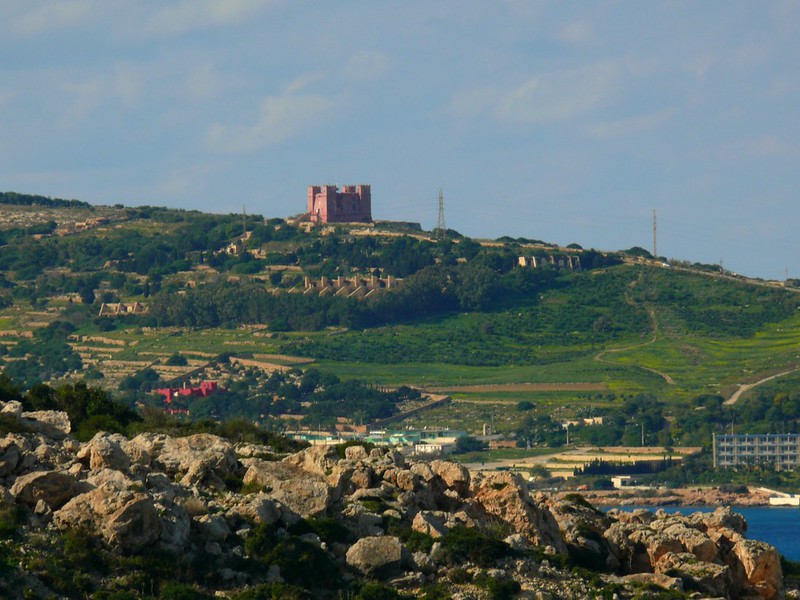
It is possible to enjoy Malta’s natural habitats: steppe (grassland), garigue (scrubland), maquis (shrubland) and woodland at Foresta 2000. Lying beneath St Agatha's Tower, it is beautiful to explore in itself or simply cut through it to go up the hill to the Red Tower from Mellieha Bay.
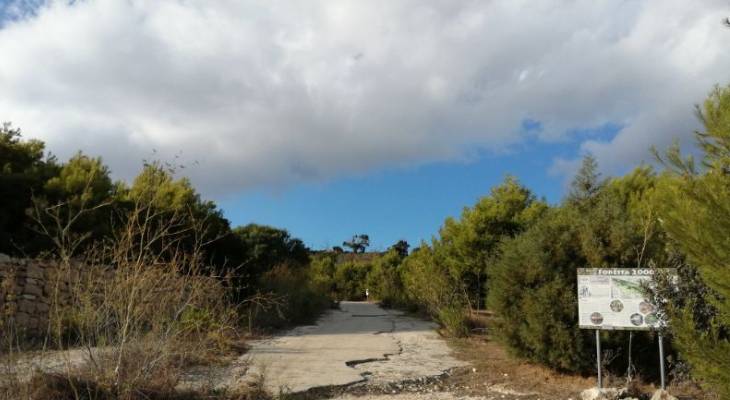
A wander around St Agatha's Tower offers good views of Mellieha Bay, Comino and Gozo. The 17th century bastioned tower is one of many watch towers built by the Knights of Malta as part of the islands' coastal defences. For unknown reasons, it was painted red after restoration, earning it its nickname: the Red Tower.
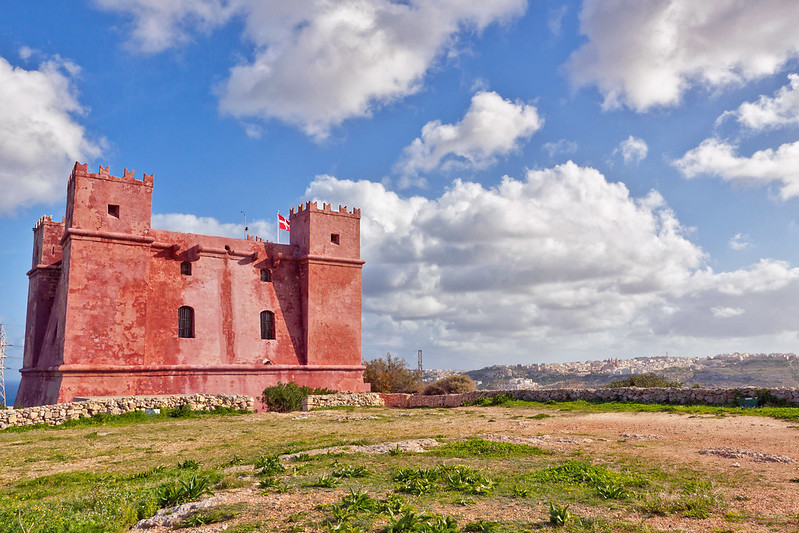
The view of Ghadira Bay from this vantage point also reveals the brackish water and saline marshlands at Ghadira Nature Reserve that gave the area its name: in Maltese, ghadira means a puddle.
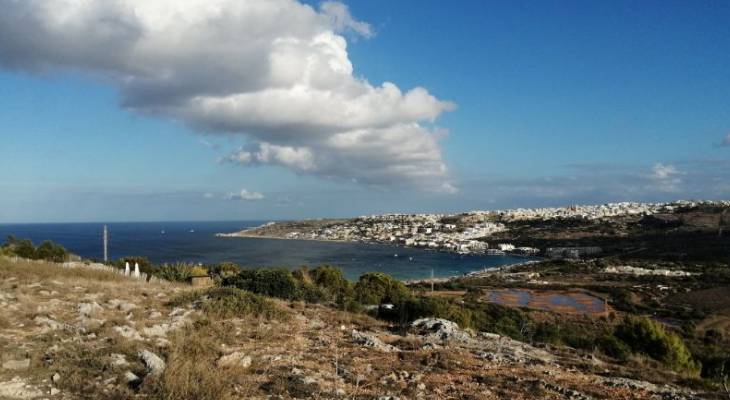
From here, there's a choice to walk on about one kilometre past the Red Tower along Triq tad-Dahar to 'the bench.' The bench is made out of Malta's natural honey calcite as a memorial with the inscription: Love, Live and Let Live.
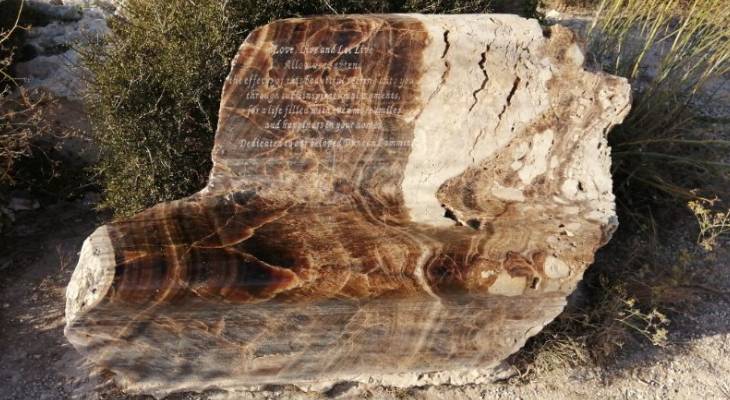
While the bench itself is a beautiful piece of natural art, it's the fantastic views to behold from it that draw people here.
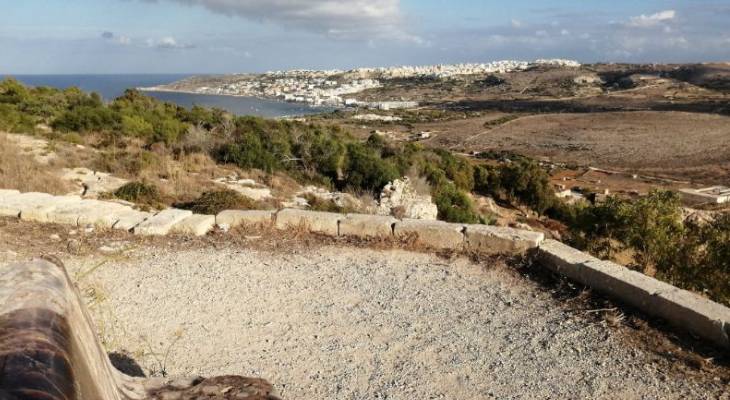
And while the view east towards Ghadira Bay is pretty, the view on the west side of the island's rugged coastline is nothing short of spectacular.
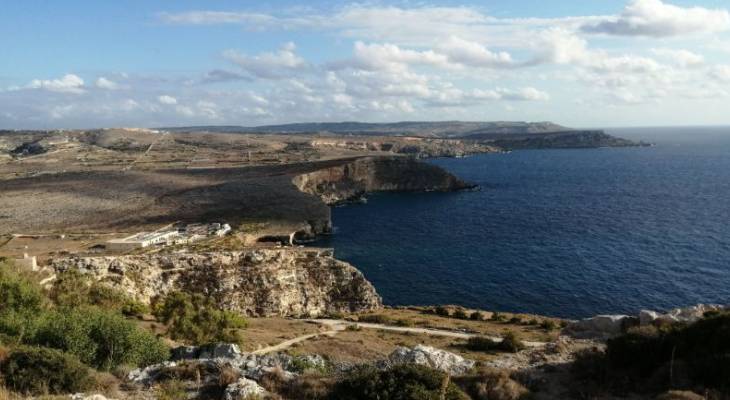
Alas, the only way to go from here is back to the main road. If one wants to see the bench and also do the Hofra walk on the parallel road on the same day, using a bicycle might be a good idea.
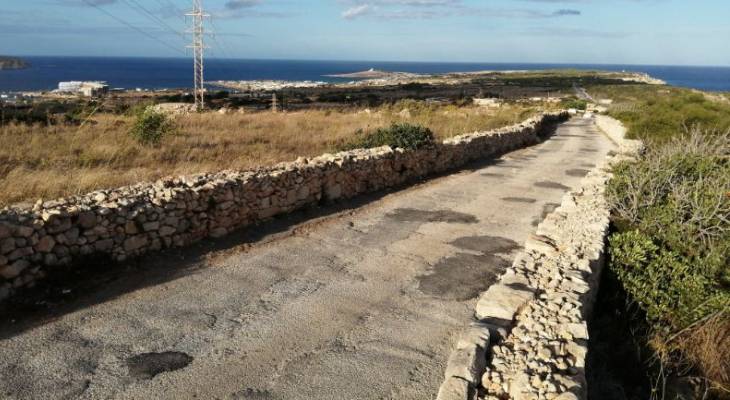
The Hofra walk is simply at the next turning on the left after the Red Tower. Triq Ghajn Tuta is a seemingly endless straight road literally cutting through the countryside to the furthest edge of the island.
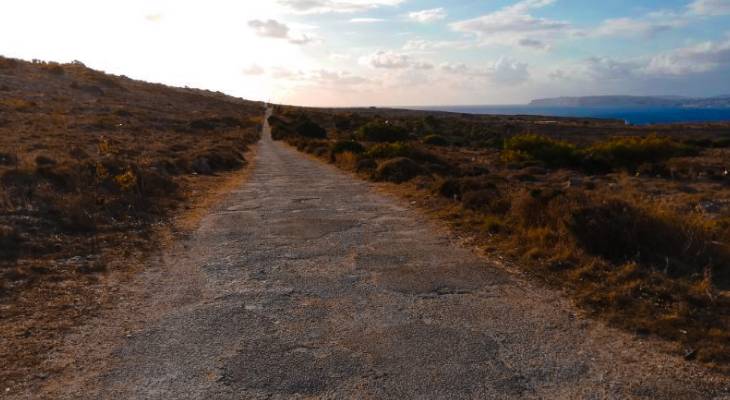
At the end of the road, a dirt road on the ride winds its way to Il-Hofra - the hole. The gaping hole in the ground is barely visible until you're just upon it - can you see it at the bottom right of the picture below, just at the end of the brown path?
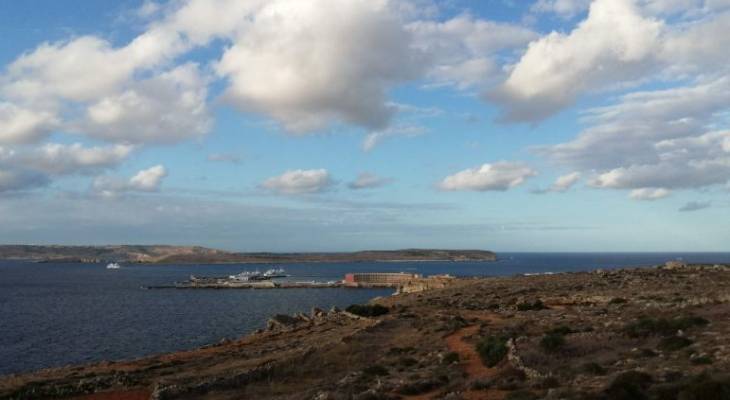
On arrival at 'the hole' it is evident that the underground cave it leads to is actually rather large! In this picture, a climber inspects the rock at one of Malta's favourite climbing sites.
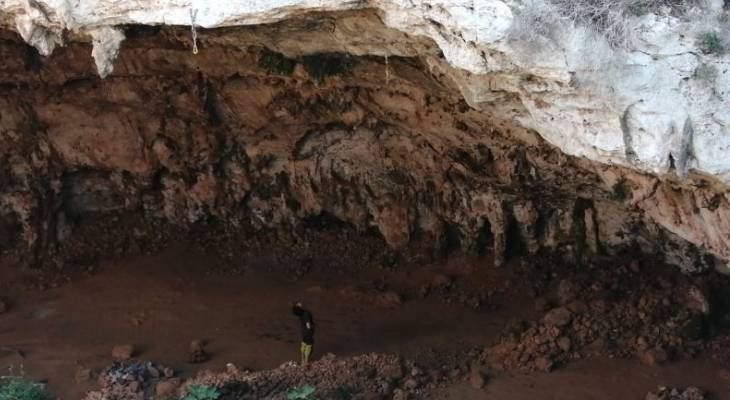
How did he get in? The underground cave has a rather neat entrance.
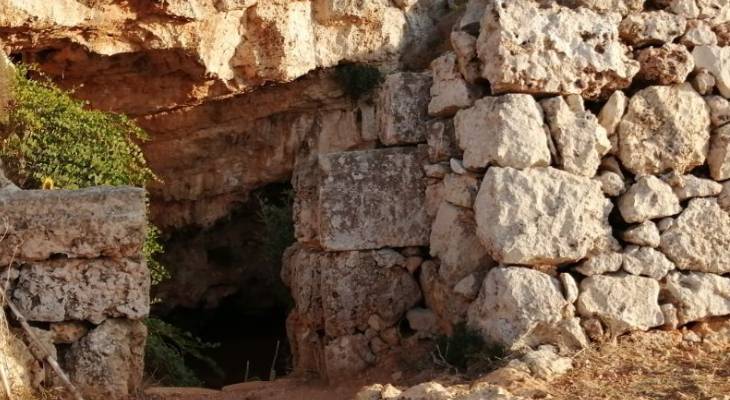
An easy pathway leads down one side to a secluded haven made of part cave and part lush growth where the roof had caved in.
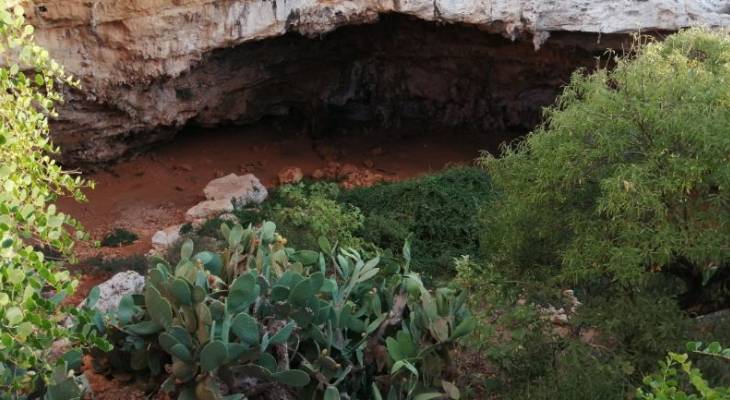
It is no wonder that climbers enjoy this cave. Its walls are full of features: holes, knots, stalactites and other interesting hand and foot holds leading into overhangs.
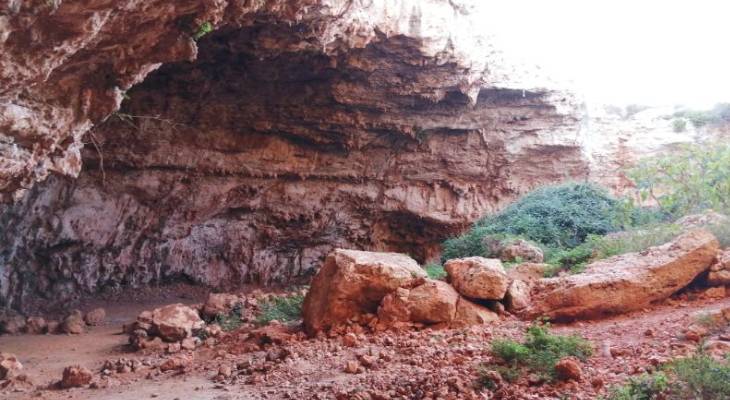
Stalactites abound and a secret garden grows where the rain gets in.
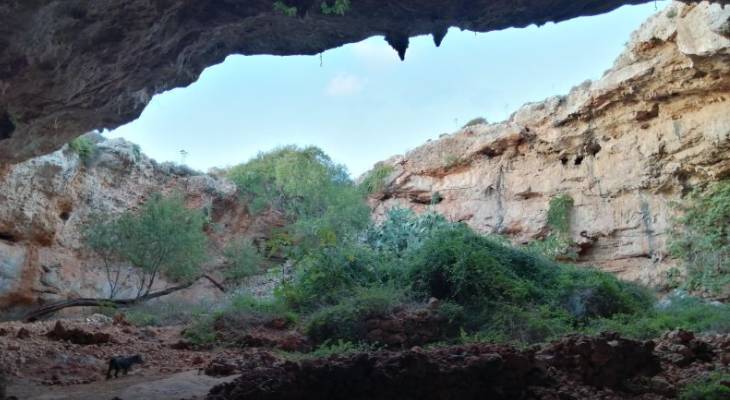
The exit from the cave could not have been designed more authentic Maltese by Mother Nature, complete with rubble walls and prickly pears.
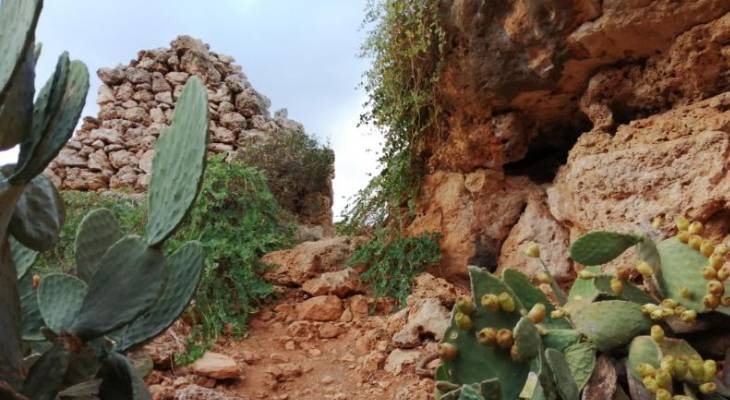
Just outside the cave, a path leads down towards the sea. Keen eyes will spot a strange archway leading over the cliffs. Doggo in the picture below is heading right for it.
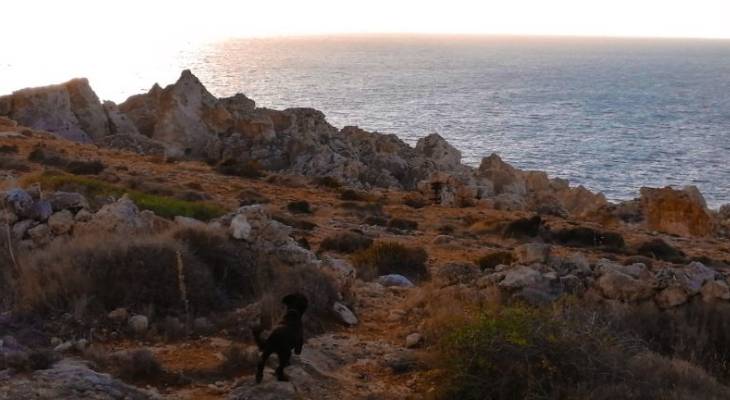
The archway looks ancient. The stones seem to be holding up by some kind of miracle and a big rusty metal frame hints at the chunky door that it once held. But where does it lead to?
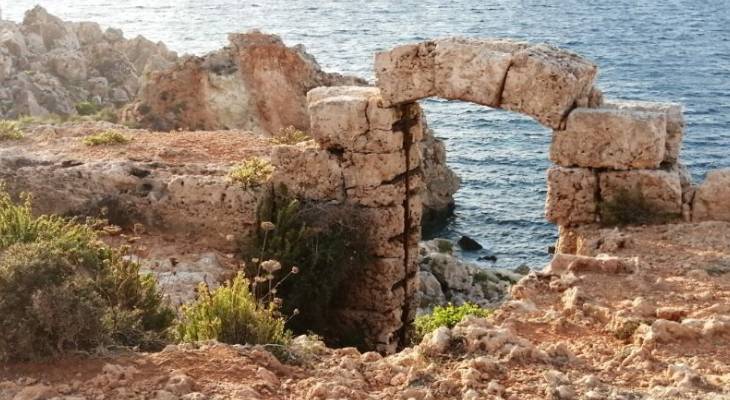
Well, literally a flight of stairs in the cliff. The mystery is that it seems to lead only to what appears to be just a mess of coastal rubble below.
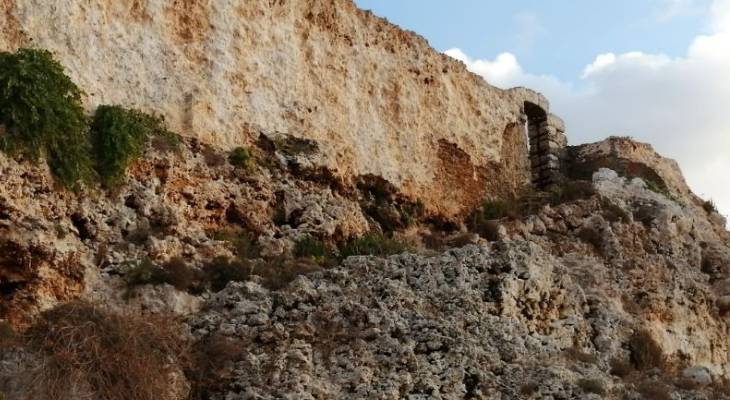
And quite a sturdy staircase it is. Building it must have been no mean feat. It must have had a practical purpose.
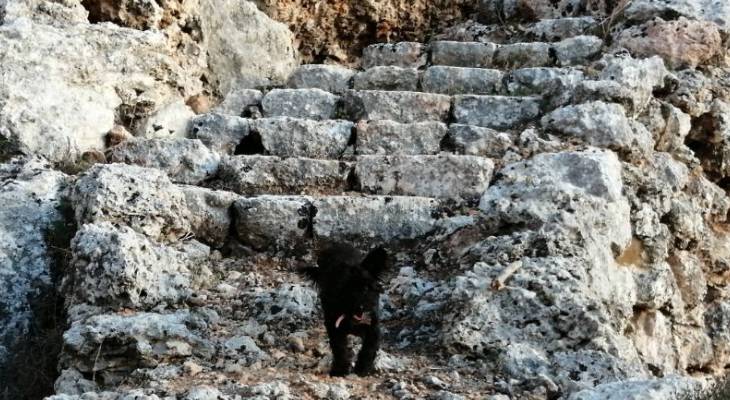
The mystery deepens when, at the bottom, it is evident that there are two staircases not just one! Especially when the other rock cut staircase lies literally a few metres away from the arched doorway.
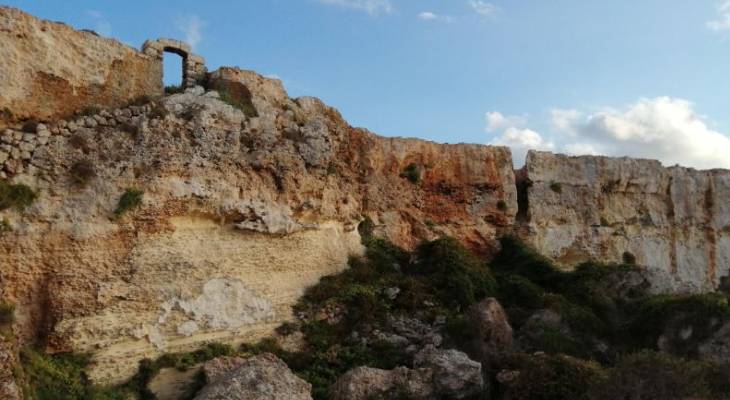
These rock cut steps were certainly not dug out in a day. The puzzle increases. Why so much effort to create two stairways, so close to each other, down to the rubble with no easy access to the sea?
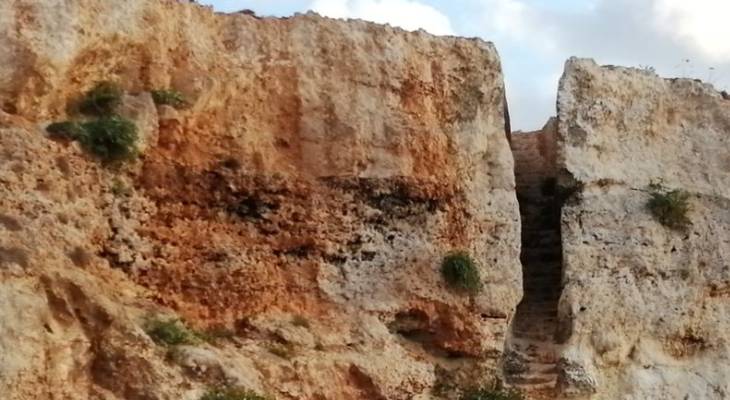
Here's a top view of rock cut steps.
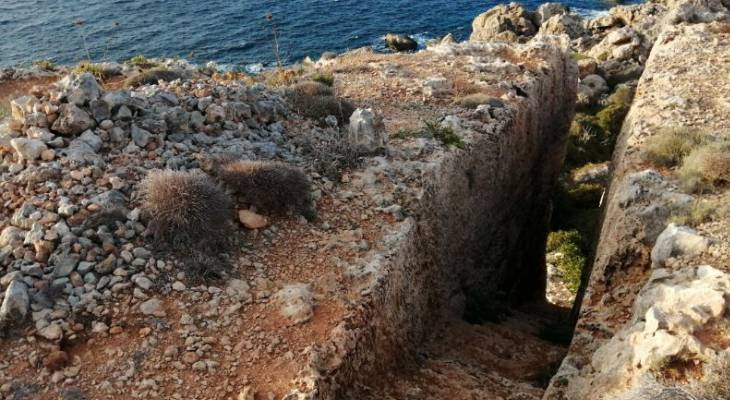
And this is where they lead to. Any wild guesses as to the purpose of these stairs? Who made them? When? Why? Now don't you love a bit of mystery?
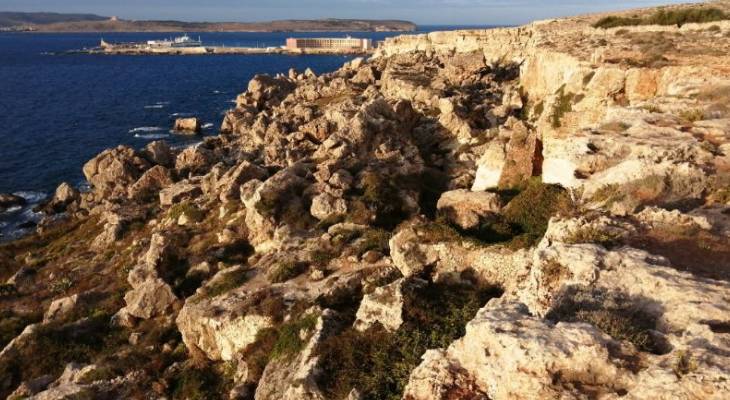
In any case, it's a wonderful place for a sunset. That will do us for the time being.
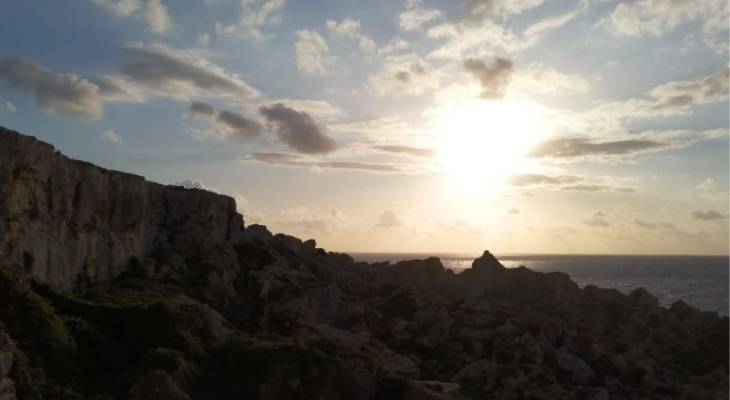
Melanie Drury (except embedded Flickr images)